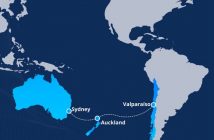The Global Infrastructure Hub has launched its Project Pipeline to provide the private sector with free information about government infrastructure projects across the world.
Australia, China, Colombia, Korea, Mexico, New Zealand, and Uruguay are the initial group of seven countries to join the Pipeline at launch, adding some of their major infrastructure projects to the online database.
The pipeline provides early stage visibility of potential projects, and will then track projects over time as they progress through their lifecycle from conception to operation.
This will enable the private sector to better evaluate project opportunities in public infrastructure across jurisdictions and markets.
Importantly, the pipeline will also act as a marketing tool for the public sector, helping governments promote their infrastructure projects and programs.
GI Hub Chief Executive Officer Chris Heathcote says the pipeline would provide visibility, accessibility, and consistency of project information in a single platform which will be available for everyone to use free of charge.
“We know that the private sector is demanding clear, updated, and accurate information on projects to help them prepare and plan for their involvement, and we believe the pipeline will deliver this,” he says.
Heathcote launched the first phase of the project with the online database, but it’s expected that more than 20 countries will participate in time.
The GI Hub expects that the pipeline will be further developed over time as both governments and the private sector use the tool and provide feedback on how it can continue to be improved.
“We greatly appreciate the efforts of this initial group to work with the GI Hub and get some of their projects on to the database to allow us to start the Pipeline and display to other countries what a pipeline can achieve,” Heathcote adds.
The pipeline provides specific details on projects on a country basis. All project information will be submitted by the relevant government agencies in each jurisdiction.
The pipeline allows users to access and search information by multi-field criteria such as region, country, sector or sub-sector, project stage, and private sector role.
The 2014 Brisbane G20 Leaders’ Summit which established the GI Hub tasked it “to ensure that there is a comprehensive, open source project pipeline database, connected to national and multilateral development bank databases, to help match potential investors with projects”.
The GI Hub is producing a range of tools aimed at helping to unlock trillions of dollars from private investments to fund much needed public infrastructure across the world.




